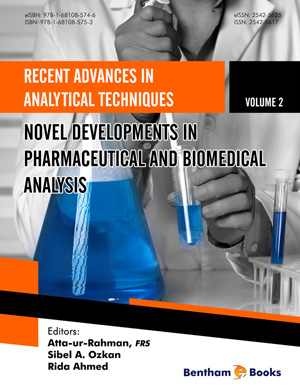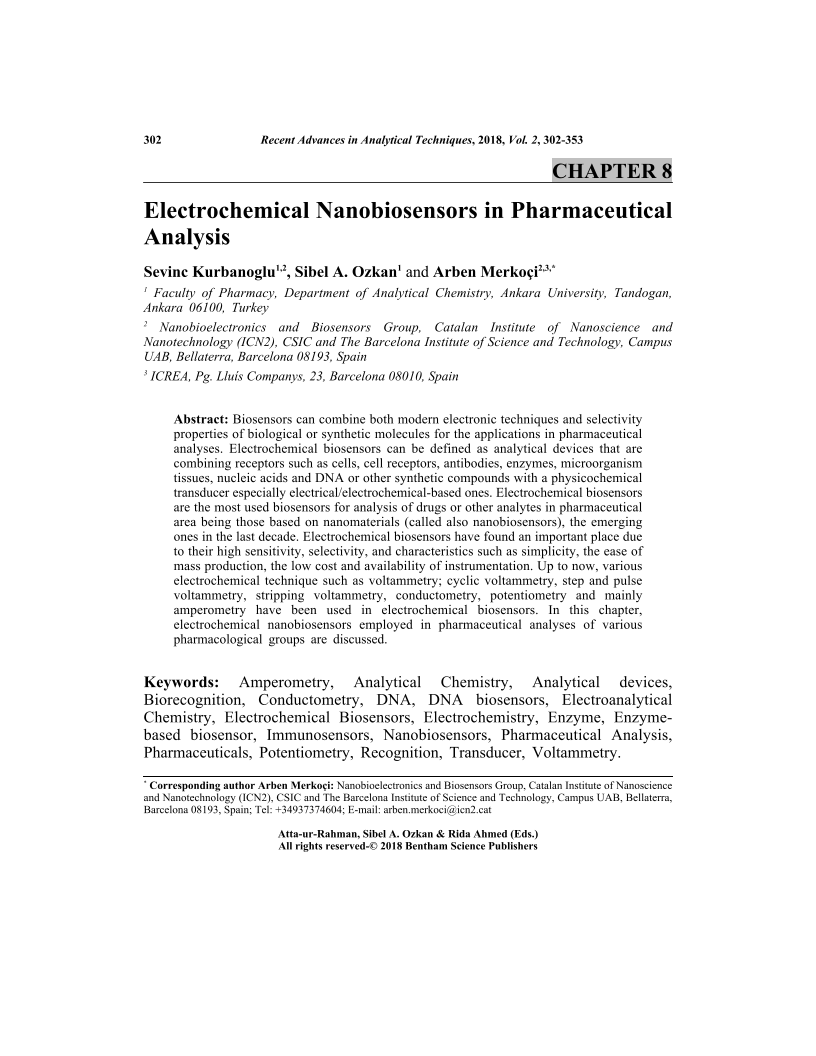Electrochemical Nanobiosensors in Pharmaceutical Analysis

- Authors: Sevinc Kurbanoglu, Sibel A. Ozkan, Arben Merkoci3
-
View Affiliations Hide Affiliations3 Nanobioelectronics and Biosensors Group, Catalan Institute of Nanoscience and Nanotechnology (ICN2), CSIC and The Barcelona Institute of Science and Technology, Campus UAB, Bellaterra, Barcelona 08193, Spain., Spain
- Source: Novel Developments in Pharmaceutical and Biomedical Analysis , pp 302-353
- Publication Date: April 2018
- Language: English
Electrochemical Nanobiosensors in Pharmaceutical Analysis, Page 1 of 1
< Previous page | Next page > /docserver/preview/fulltext/9781681085746/chapter-8-1.gif
Biosensors can combine both modern electronic techniques and selectivity properties of biological or synthetic molecules for the applications in pharmaceutical analyses. Electrochemical biosensors can be defined as analytical devices that are combining receptors such as cells, cell receptors, antibodies, enzymes, microorganism tissues, nucleic acids and DNA or other synthetic compounds with a physicochemical transducer especially electrical/electrochemical-based ones. Electrochemical biosensors are the most used biosensors for analysis of drugs or other analytes in pharmaceutical area being those based on nanomaterials (called also nanobiosensors), the emerging ones in the last decade. Electrochemical biosensors have found an important place due to their high sensitivity, selectivity, and characteristics such as simplicity, the ease of mass production, the low cost and availability of instrumentation. Up to now, various electrochemical technique such as voltammetry; cyclic voltammetry, step and pulse voltammetry, stripping voltammetry, conductometry, potentiometry and mainly amperometry have been used in electrochemical biosensors. In this chapter, electrochemical nanobiosensors employed in pharmaceutical analyses of various pharmacological groups are discussed.
-
From This Site
/content/books/9781681085746.chapter-8dcterms_subject,pub_keyword-contentType:Journal -contentType:Figure -contentType:Table -contentType:SupplementaryData105

